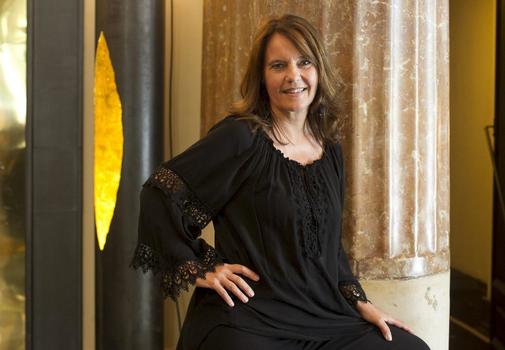Long ago, Caroline Link (Bad Nauheim, Germany, 1964) won an Oscar. In fact, along with Volker Schlöndorff (for The Tin Drum ) and Florian Henckel von Donnersmarck (for The Life of Others ), she completes the select and trinitarian Germanic club that has achieved it. He did it in 2001 for In a place in Africa , an evocative chronicle that speaks of uprooting, memory and, above all, pain.
This weekend, Link premiered This child needs fresh air and, in his own way, repeats the keys that define a cinema that privileges emotion and memory from the always clean, always new look of a teenager, a young man or, In this case, from a child. "Maybe he'll repeat me , " Link says as he laughs. «Although I prefer to think that I simply make the cinema that interests me about the things that interest me». That is to say? «My cinema is always a portrait of the tragedy from the innocent look. Only without sentimentality, drama acquires its true dimension ».
And indeed, it is. Again, as in the award-winning film in Hollywood or Beyond Silence (1996) or in Marrakech Destination (2013), the center of attention is the family and, again, the institution of Marras is portrayed as clearly as Honduras . And always from the eyes of a creature that either understands nothing or simply does not want to do it. Let's say that the game consists in facing the rigidity of a fundamentally harsh reality with the surprised naivety of childhood. That is not necessarily soft. " My cinema is political, but in its own way, without pretending, " he clarifies.
The peculiarity now is that the starting point is the autobiography of a comedian, Hape Kerkeling, as well known in his country as enigmatic outside him. We are in postwar Germany. On the one hand, men silenced by shame, perhaps guilt; on the other, women forced by history and also that same shame to react to a life that does not stop. And in the middle, a kid of just four years who discovers that nothing makes sense . And learn to laugh and make people laugh.
"First," Link interrupts before the next question, "is to clarify who Kerkeling is. For a Spaniard it is nobody. And maybe for the new generation of Germans, either. But for those of us born in the mid-60s, it is an almost omnipresent figure that turned humor into a way of interpreting and loving the world. It is not at all one of those acidic or corrosive humorists. He laughs with people, never people. On the other hand, the film is not so much a biopic as just two years of his life in the late 70s. By then, the traces of the war were still present, but the political fever of the 70s had not yet broken . Germany was a quiet country, but full of contradictions.
This child needs fresh air runs in a strange silent Arcadia. "The guilt and shame caused that, after the war, the Germans lost the ability to communicate," says the director to clarify the environment in which the protagonist learns to look at a strange world.
-Your cinema is vocationally women's, even feminist , how do you see everything that is happening from the Metoo movement in the cinema?
-With joy, but with caution. We must put an end to the fact that women have an obligation to always be pleasant, to be kind ... That is a requirement that men do not have and that is at the base of all abuses and mismatches. I see it in my daughter and in the new generations . It is important that that change. On the other hand, and when it comes to cinema, we live in a strange time when political correctness is ending sensuality. I miss sexuality in the cinema.
And with that said, it's time to talk about Oscar, of course. What did Oscar mean in his life and career? "Nothing. My daughter was born at the time they gave it to me. I didn't see or need to move to Los Angeles. They made me offers, of course, but I rejected them. Well, that.
According to the criteria of The Trust Project
Know more- movie theater
CineMuere director Roberto Bodegas, founder of the 'third way' of Spanish cinema
In a shirt of eleven rods Juan Diego: "I take a murderer, a fascist and a homosexual inside"
InterviewThe other facets of Maggie Civantos, a supportive and committed actress

